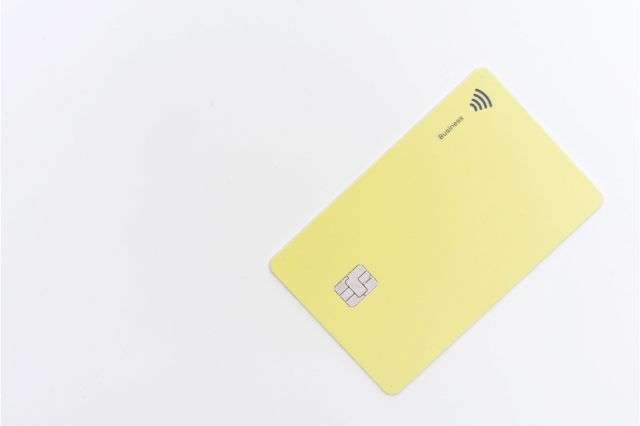How to Build Your Credit With a Kredittkort
A credit card is a type of payment card, which is used to pay for goods and services. The credit card has two main functions: enabling the cardholder to make purchases and providing an avenue for merchants to receive a sum of accrued debt.
However, the debt on these cards may accumulate at an incredibly high rate, which can be extremely dangerous if the cardholder becomes indebted.
Authorization
Card authorization is a process in which a merchant obtains the approval of a card-issuing bank to perform a charge. This is often required for online or in-person purchases.
Before the transaction is authorized, the issuer may request verification that the cardholder has sufficient funds to complete the purchase. If there are insufficient funds, the card issuing bank will decline the transaction. If the transaction is approved, the authorization will only be active for a specified period of time.
For the most part, this process can be completed in a matter of seconds. However, there are some instances where this process can take longer. For example, if the payment amount is greater than the maximum limit, or if the account holder’s account has a balance, the authorization will be declined.
Depending on the issuing bank, a charge card’s issuer may also offer overdraft protection. Generally, this service comes with a fee.
Clearing and settlement
If you’re in the business of handling payment cards, you may be looking for ways to improve your bottom line. Using an integrated payment solution is one way to do this. The most common is to use a service that can receive and distribute wire transfers between banks.
The more sophisticated payment solutions can also handle your ACH, echeck, and charge card payments. By taking this route, you gain the efficiencies of scale, the cost efficiencies of outsourcing, and the control of your own customer data. Having these services in place can ensure that your bottom line stays in the black.
The best part is that you don’t have to sacrifice your time or your sanity. The resulting system is less expensive, more efficient, and more capable than the competition.
Interest on unpaid balance
When your charge card balance is not paid in full by the due date, you are charged interest. The interest rate depends on the type of transaction you made and your credit history. You can find out how much interest you are charged by checking your statement.
Most charge cards provide a 21-day grace period before they start charging interest. This gives you extra time to pay off your balance before interest starts to accrue. Visit kredittkortinfo.no for more information about how to best utilize your card. However, if you carry a balance from month to month, you will lose this period.
The interest amount owed on your unpaid balance depends on the APR, or annual percentage rate, of your charge card. It is also calculated on a daily basis. For example, if your APR is 6.5% and you make a $500 payment on Day 10, you have an average daily balance of $1,500.
If your card is in a promotional period, your interest rate may increase. You can ask the card issuer for a reduction. Or you can transfer your balance to another charge card with a lower interest rate.
Charge cards
Charge cards are similar to credit cards, but they do not carry a specific credit limit. Instead, the issuer sets a spending limit for you. This limit can be adjusted to fit your needs. Some issuers even allow you to overspend.
One of the biggest advantages of a charge card is its ability to give you more purchasing power. It allows you to make purchases without having to immediately pay for them. However, there are many drawbacks to these types of cards.
One of the main drawbacks of charge cards is their high annual fees. These fees can be as high as $500 for some high-end cards. If you want to avoid paying these charges, it is wise to shop around. Some cards offer free or reduced annual fees in the first year.
If you are thinking about applying for a charge card, it is important to have a good credit score. It is also a good idea to be disciplined with your payments. If you fail to make your payments, you will be charged late fees. Moreover, your payment history will be reported to the credit bureaus.
Another disadvantage is that you cannot carry a balance. Typically, the limit on your charge card is adjusted monthly. You will need to pay off your entire balance at the end of the billing cycle to avoid incurring interest.
High-interest payments on a charge card can lead to a debt spiral
Charge cards are an easy way to make purchases but they can also lead to a debt spiral. It is important to understand the risks and potential solutions before you decide to get a charge card or use one for any purpose.
It is possible to avoid a debt spiral by making sure that you always pay the minimum balance on your cards. However, you should not let this become a habit. This is because most of your payment goes towards interest. If you miss a payment, you could face hundreds of dollars in late fees.
When it comes to high-interest debt, you need to take steps to reduce the amount of interest. Ideally, you should pay off the card in full. Click the link to learn more about how to improve your credit score. If you can’t, consider getting a debit card instead. It will allow you to avoid the temptation to spend money you don’t have.
How to Build Credit Fast
The answer to how to build credit isn’t as simple as just accumulating a bunch of new charge card accounts. The process involves monitoring your credit report and establishing a responsible use of credit. That is, making on-time payments, and keeping your account balances low.
One of the most effective ways to raise your score is to get a loan. You can apply for a student loan or secured line of credit. These are both excellent options for establishing credit and building your credit fast. In addition, you may want to consider a cash back charge card, as they accrue cashback in certain stores.
You can also open up an authorized user account for your charge cards. This will show up on your credit reports, and improve your score. The same is true for using a family card. However, you’ll want to make sure that you’re the primary cardholder on your accounts. If not, your score could be dragged down.
A good credit score can help you get the best deals. For example, a good score can mean you don’t have to pay a higher interest rate on a mortgage. And a good score can help you qualify for a car loan. Even if you don’t own a car, a good score will ensure you won’t get a charge card with high fees or poor interest rates.
The best way to increase your credit score is to start building credit in the first place. It’s not impossible, and it’s not as difficult as it might sound. You’ll need to take some time to establish a good credit history and make on-time payments. But the rewards are well worth the effort.
Another great option is to get a charge card that offers a 0% APR. You can click here for more information about APR. This is a smart move, especially if you plan on using your charge card often. You can apply online or over the phone. And you should always pay your bills on time, because missing a payment can damage your credit for years. If you have trouble paying your bill, call the company to set up a payment plan.
You’ll want to focus on the most important components of a credit score, such as payment history, debt, and credit utilization. These are the ones that will have the biggest impact on your credit. The first is the most obvious. If you’ve paid your bill on time for at least six months in a row, your credit will improve. That’s the credit industry’s standard for a good credit score.





